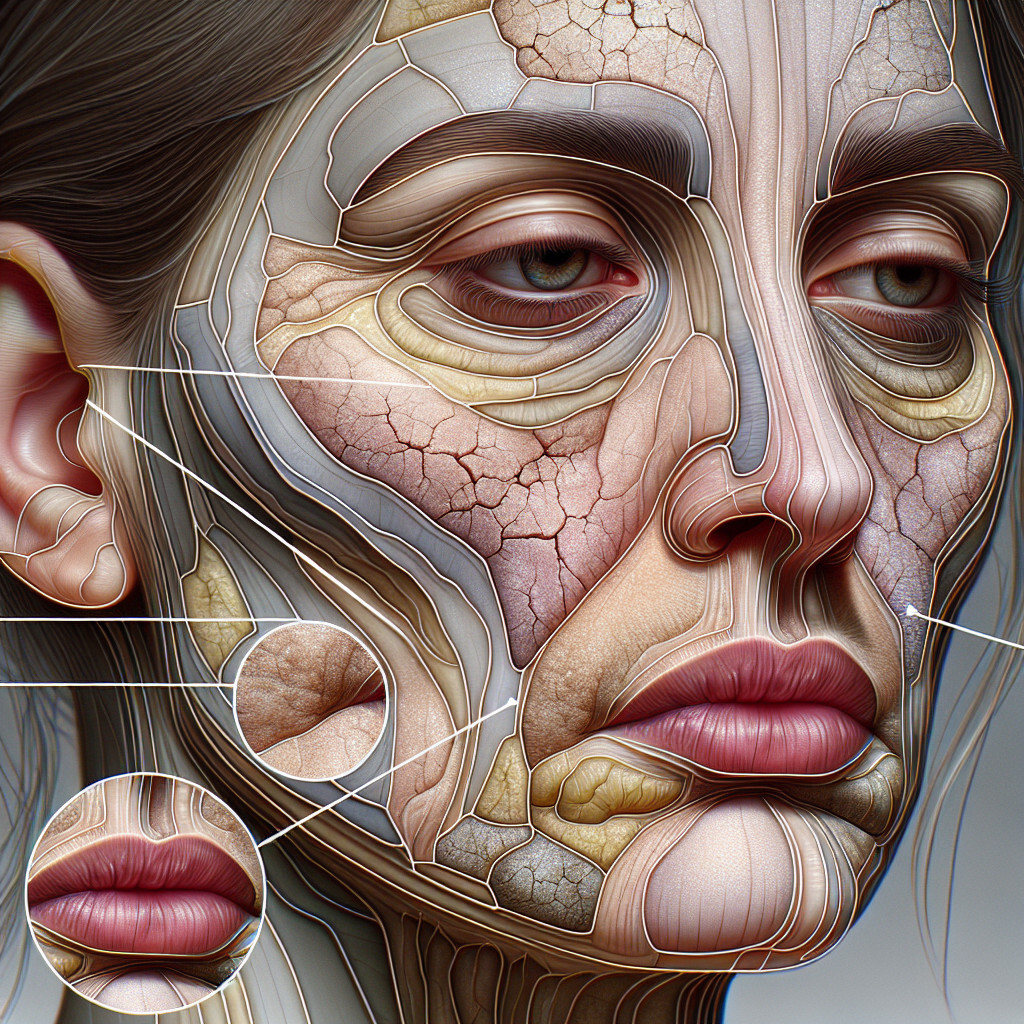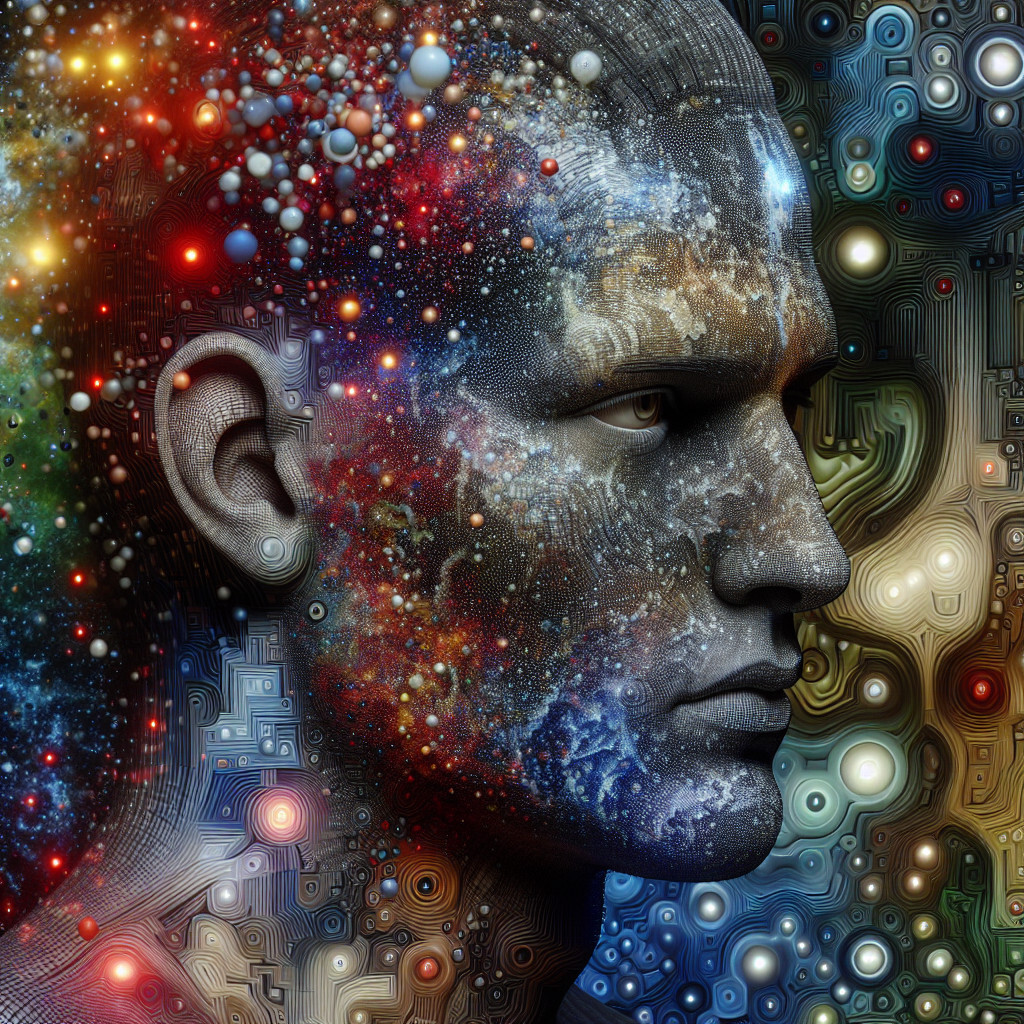-
Table of Contents
“Dehydration: The Fast Track to a Dull and Dry Complexion.”
Introduction

When you don’t drink enough water, your body becomes dehydrated which can have a noticeable impact on your facial skin. Dehydration can cause your skin to become dry, tight, and flaky. It may also appear dull and may develop wrinkles and fine lines more easily due to the lack of elasticity and flexibility. Furthermore, lack of water can lead to puffiness and swelling, as the body retains water to prevent further dehydration. In severe cases, dehydration can also lead to skin disorders like eczema and psoriasis. Therefore, not drinking enough water can negatively affect the health and appearance of your face.
The Impact of Dehydration on Skin Health
Water is an essential component of our bodies, constituting about 60% of our total body weight. It plays a crucial role in maintaining the health and vitality of our skin, which is the largest organ of the body. When we fail to consume an adequate amount of water, our skin can suffer a variety of adverse effects, a phenomenon known as dehydration.
Dehydration occurs when the body loses more water than it takes in. This imbalance disrupts the normal functioning of the body and can have a significant impact on the skin. The skin, being the outermost layer of the body, is often the first to show signs of dehydration. These signs can range from mild to severe, depending on the extent of the dehydration.
One of the most noticeable effects of dehydration on the skin is dryness. Water is essential for maintaining the skin’s natural moisture balance. When the body is dehydrated, it prioritizes the use of water for vital organs like the heart and brain, leaving less for the skin. This can result in skin that feels dry, tight, and flaky. Over time, this lack of moisture can lead to the development of fine lines and wrinkles, giving the skin a prematurely aged appearance.
In addition to dryness, dehydration can also cause the skin to lose its elasticity. Elasticity refers to the skin’s ability to stretch and then return to its original shape. This is a vital property of healthy, youthful skin. However, when the body is dehydrated, the skin’s elasticity decreases. This can lead to sagging skin and the formation of deep wrinkles.
Dehydration can also lead to a dull complexion. This is because water is necessary for the proper circulation of blood and nutrients to the skin. When the body is dehydrated, this circulation is impaired, leading to a lack of nutrients reaching the skin. This can result in a complexion that looks dull and lifeless.
Furthermore, dehydration can exacerbate existing skin conditions. For instance, conditions like eczema and psoriasis, which are characterized by dry, itchy skin, can become significantly worse when the body is dehydrated. Similarly, acne, which is caused by an overproduction of oil in the skin, can also be aggravated by dehydration. This is because when the skin is dehydrated, it can trigger the body to produce more oil to compensate for the lack of moisture, leading to an increase in acne breakouts.
In conclusion, water plays a vital role in maintaining the health and appearance of our skin. Dehydration can lead to a variety of skin problems, including dryness, loss of elasticity, a dull complexion, and the exacerbation of existing skin conditions. Therefore, it is essential to consume an adequate amount of water each day to keep our skin healthy and vibrant. The recommended daily intake of water varies depending on factors such as age, sex, and physical activity level, but a general guideline is to aim for at least eight 8-ounce glasses of water per day. By doing so, we can help ensure that our skin remains hydrated, healthy, and youthful.
Understanding the Effects of Not Drinking Water on Facial Appearance
Water is a fundamental element of life, and its importance to our health cannot be overstated. It plays a crucial role in maintaining the body’s overall function, including the health and appearance of our skin. The face, being the most exposed part of our body, is particularly susceptible to the effects of dehydration. Understanding the effects of not drinking water on facial appearance can provide a compelling motivation to maintain proper hydration.
The human body is composed of about 60% water, and the skin, as the largest organ, holds a significant portion of it. When the body is deprived of sufficient water, it initiates a survival mechanism, prioritizing the allocation of available water to vital organs such as the heart and brain. Consequently, the skin, and particularly the face, suffers from this water rationing, leading to a range of visible effects.
One of the most immediate and noticeable effects of not drinking enough water is dryness. The skin on the face becomes flaky, tight, and uncomfortable. This dryness is not just a superficial issue; it can lead to deeper problems. Dry skin is more prone to wrinkling and has less elasticity, which can make a person appear older than they are. Moreover, dry skin can exacerbate existing skin conditions like eczema and psoriasis, leading to further discomfort and visible skin issues.
In addition to dryness, dehydration can lead to a dull complexion. Water is essential for flushing out toxins from the body. Without adequate water, these toxins can build up, leading to inflammation and causing the skin to look dull and lifeless. This lack of radiance is often one of the first signs that the body needs more water.
Puffiness and bloating are other common effects of not drinking enough water. When the body is dehydrated, it tends to retain water as a survival mechanism, which can result in puffiness around the face, particularly under the eyes. This water retention can also make the face appear bloated or swollen.
Furthermore, dehydration can lead to the development of acne and other skin blemishes. Water is crucial for maintaining the skin’s natural balance and for flushing out impurities. Without enough water, the skin can become unbalanced, leading to increased oil production, which can clog pores and result in acne.
Lastly, chronic dehydration can lead to more serious long-term effects on the face. Over time, the lack of water can cause the skin to lose its plumpness and elasticity, leading to premature aging. This can result in the development of fine lines, wrinkles, and sagging skin.
In conclusion, not drinking enough water can have a significant impact on the appearance of your face. From dryness and dullness to puffiness and acne, the effects of dehydration are far-reaching. Moreover, chronic dehydration can lead to long-term damage, including premature aging. Therefore, it is crucial to maintain proper hydration not only for the health of your body but also for the health and appearance of your skin. Drinking an adequate amount of water each day is a simple yet effective way to keep your skin looking healthy and vibrant.
How Lack of Water Intake Contributes to Premature Aging
Water is an essential component of life, and its importance to our health cannot be overstated. It plays a crucial role in maintaining the body’s overall function, including the health and vitality of our skin. The skin, being the largest organ of the body, is significantly affected by our hydration levels. When we fail to consume an adequate amount of water, our skin suffers, and the effects can be quite visible, particularly on our faces. This article will explore how a lack of water intake contributes to premature aging.
The human body is composed of about 60% water, and this vital fluid is responsible for a myriad of functions, including nutrient transportation, temperature regulation, and waste removal. When we don’t drink enough water, these functions are compromised, leading to various health issues, including skin problems. Dehydration can cause the skin to become dry, flaky, and less resilient, which can lead to premature aging.
One of the most noticeable effects of dehydration on the skin is dryness. Water helps to moisturize the skin from the inside out, keeping it supple and elastic. Without adequate hydration, the skin can become dry and tight, which can lead to flaking and itching. Over time, this dryness can cause the skin to lose its elasticity, leading to the formation of fine lines and wrinkles, signs commonly associated with aging.
In addition to dryness, a lack of water intake can also lead to a dull complexion. Water is essential for flushing out toxins from the body. When we don’t drink enough water, these toxins can build up, leading to inflammation and breakouts. This can cause the skin to look dull and lifeless, rather than radiant and glowing.
Moreover, water plays a crucial role in maintaining the skin’s volume. It helps to plump up the skin, making it look youthful and healthy. When we’re dehydrated, our skin can lose its plumpness and start to sag, another sign of aging. This is because water helps to fill up the spaces between our cells, giving our skin a firm and youthful appearance. Without enough water, these spaces can deflate, leading to sagging and wrinkling.
Furthermore, a lack of water can also affect the skin’s ability to heal itself. Our skin is constantly repairing and renewing itself, and water is essential for these processes. When we’re dehydrated, our skin’s healing process can slow down, leading to longer recovery times for wounds and blemishes. This can also lead to the formation of scars, which can make the skin look older.
In conclusion, a lack of water intake can have a significant impact on the health and appearance of our skin, particularly on our faces. It can lead to dryness, a dull complexion, loss of volume, and a slower healing process, all of which contribute to premature aging. Therefore, it’s crucial to ensure that we’re drinking enough water each day to maintain our skin’s health and vitality. Remember, healthy skin is hydrated skin, and hydrated skin is less likely to show signs of premature aging.
The Connection Between Water Consumption and Acne Breakouts
Water is an essential component of our daily lives, not only for survival but also for maintaining our overall health and well-being. It plays a crucial role in various bodily functions, including digestion, circulation, absorption, and even excretion. However, the importance of water extends beyond these internal processes. It also significantly impacts our external appearance, particularly the health and vitality of our skin. One of the most noticeable effects of inadequate water consumption is the potential for increased acne breakouts.
Acne, a common skin condition characterized by the occurrence of inflamed or infected sebaceous glands in the skin, is often associated with various factors such as hormonal changes, stress, and diet. However, recent studies have highlighted the connection between water consumption and acne breakouts. The skin, like any other organ in the body, requires water to function optimally. When the body is dehydrated, it can lead to a series of adverse effects on the skin, including the exacerbation of acne.
Dehydration causes the skin to become dry and flaky. This dryness triggers the sebaceous glands to produce more oil to compensate for the lack of moisture, leading to an oily skin surface. This excess oil, combined with dead skin cells, can clog the pores, creating a perfect environment for acne-causing bacteria to thrive and multiply. Consequently, this can lead to the formation of pimples, blackheads, and other forms of acne.
Moreover, water is a natural detoxifier. It aids in flushing out toxins from the body, including those that can contribute to acne development. When the body is dehydrated, it hampers this natural detoxification process. The toxins accumulate in the body and can manifest on the skin in the form of acne breakouts.
In addition to this, inadequate water intake can also lead to inflammation throughout the body. This inflammation can cause the skin to become red and swollen, making existing acne more noticeable and potentially leading to more breakouts.
Furthermore, water plays a crucial role in maintaining the skin’s elasticity and suppleness. Dehydration can cause the skin to lose its plumpness and elasticity, leading to the appearance of wrinkles and fine lines. While this may not directly contribute to acne, it can make the skin appear dull and aged, further exacerbating the appearance of acne and other skin imperfections.
In conclusion, water consumption plays a significant role in maintaining skin health and preventing acne breakouts. It helps keep the skin hydrated, aids in the body’s natural detoxification process, reduces inflammation, and maintains the skin’s elasticity. Therefore, it is essential to ensure adequate water intake as part of a healthy lifestyle and skincare routine.
While drinking an adequate amount of water can help maintain skin health, it is important to note that it is not a standalone solution for acne. A comprehensive skincare routine, a balanced diet, regular exercise, and proper sleep are also crucial for maintaining healthy skin and preventing acne breakouts. If acne persists despite these measures, it is advisable to consult a dermatologist or a skincare professional for further evaluation and treatment.
Q&A
1. Question: What happens to the skin on your face if you don’t drink enough water?
Answer: Lack of water can cause your skin to become dry, tight, and flaky. It can also lead to premature wrinkles and lines.
2. Question: How does dehydration affect acne?
Answer: Dehydration can cause an increase in oil production in your skin, which can lead to acne breakouts.
3. Question: Can not drinking water cause dark circles under the eyes?
Answer: Yes, dehydration can cause the skin under your eyes to appear dull and your eyes to look sunken, leading to dark circles.
4. Question: What happens to the lips if you don’t drink enough water?
Answer: Insufficient water intake can lead to dry, chapped lips.
Conclusion
If you don’t drink water, your skin may become more prone to skin disorders and premature wrinkling. Dehydration can cause your skin to lose its elasticity and suppleness, leading to dryness, flakiness, and increased appearance of fine lines and deeper wrinkles. Lack of water can also lead to a dull complexion and promote inflammation and acne.






